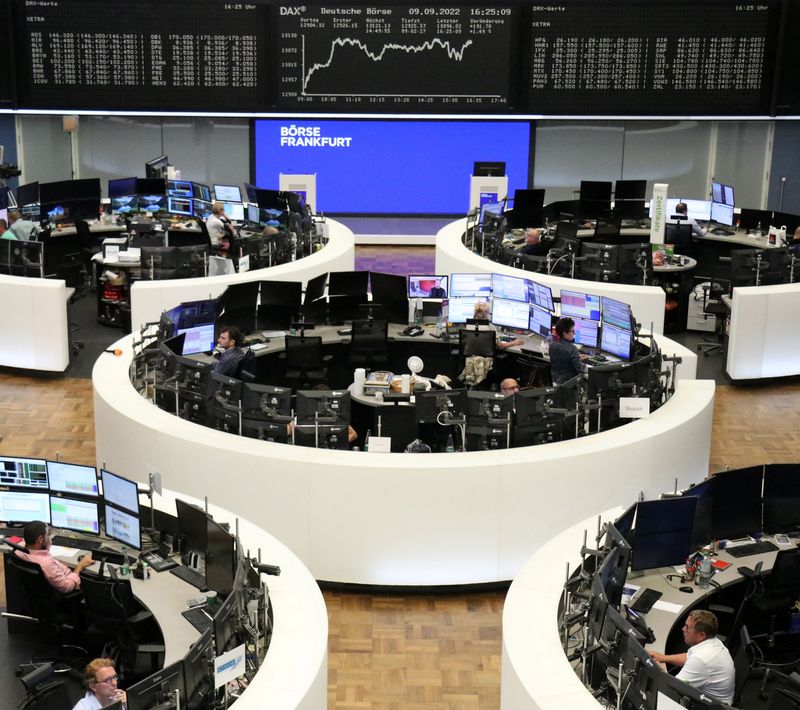By Shreyashi Sanyal and Susan Mathew
(Reuters) -European shares hit a two-week high on Monday on hopes of some easing in energy prices and banks rallied to near four-week highs on bets of more jumbo-sized interest rate hikes in Europe.
The pan-European STOXX 600 index rose 1.8%, following its first weekly gain in a month on Friday.
Investors focused on attempts to push through multi-billion euro packages to prevent utilities buckling under a liquidity squeeze and to protect households from soaring energy bills.[nL1N30G0BM][nL8N30C1M4]
"We are still seeing an extension of the positivity that emerged last week when measures were taken in Europe to cap energy prices," said Stuart Cole, head macro economist at Equiti Capital.
"This has very much raised hopes that inflation may peak sooner than had previously been thought and that central banks, while still expected to maintain their aggressive stance regarding interest rate rises in the short term, may not have to hike them quite as high as originally feared."
But keeping energy prices artificially lower risks stoking domestically generated core inflation, potentially changing terminal interest rate expectations, Cole said.
Banks, which gain in a higher interest rate environment, rose with the euro banks index jumping 3.4%, extending gains from Thursday when the ECB raised its key rates by 75 basis points and promised further hikes.
Hawkish ECB signals have sent the bank index up nearly 10% for the month, supporting much of the STOXX 600's 3% gain so far in September.
Ukrainian forces sweeping further across territory seized from fleeing Russian troops, also aided sentiment on some hopes that the energy crisis due to the Russia-Ukraine war could potentially ease in intensity. [MKTS/GLOB]
Markets are now looking ahead to U.S. inflation data later in the week and a policy decision by the Federal Reserve later in the month.
All major sectors in Europe were in positive with retail stocks up 4.5%.
Orpea shares plunged 21.5% after the debt-laden French care home company said its financial performance is expected to decline further in the second half of the year.

Swiss Re rose 2.6% as it said global geopolitical tensions, macroeconomic developments and climate change have heightened demand for risk protection and will lead to increased premiums.
Separately, Sweden's right bloc inched into the narrowest of leads with around 90% of votes counted after Sunday's general election, with results pointing to a new government after eight years of Social Democrat rule.